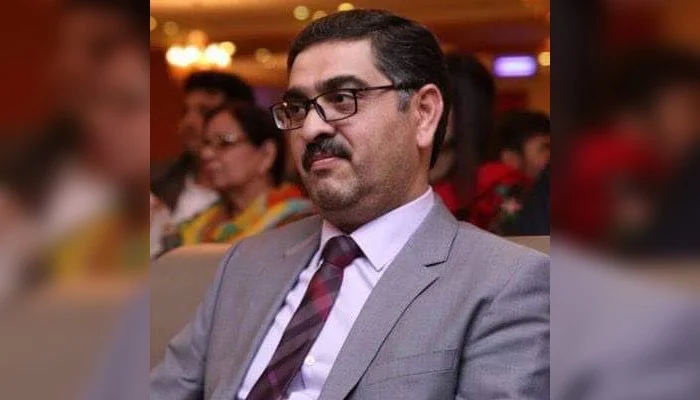Caretaker Prime Minister Anwaar-ul-Haq Kakar said on Saturday that Pakistan desired to establish a positive and constructive long-term partnership with the United States.
The interim PM expressed these views during an interactive session with the students of the University of Harvard held in Islamabad wherein he acknowledged that there are always agreements and disagreements between countries on various issues.
However, he emphasised that he did not believe in “negative energies and expressed a desire for a long-term partnership with the United States.”
While answering a question on the impact of war between then USSR and Afghanistan, the premier said that Pakistan played a huge and important role in the subsequent events of war in the region and towards global peace.
“Priorities by different governments in Pakistan kept on changing, but they did have visions and tried to visualise them,” he said.
Responding to a question, PM Kakar said that “non-completion of a government’s term was not undemocratic”. “In the past 15 years, three elected parliaments have completed their terms,” Kakar opined.
The premier also addressed the issue of high expenditures and limited resources in Pakistan. He stated that democracy was the guarantor of the strength of the parliament. The interim PM praised the resilience of the Pakistani people in overcoming crises.
Talking about the Pakistani diaspora in the US, Karkar said that they were a success story itself. PM Kakar also spoke about the opportunities available to young people who travel abroad, whether to America, Europe or elsewhere.
‘This is not only a challenge but also an opportunity, as these individuals bring benefits to country through remittances,” he said and emphasised that Pakistani people living overseas work for their families. He pointed out that this was not the first time young people had left the country and that it was normal for people to travel abroad every month and every year.
“It is not wrong for them to go to other countries in search of better opportunities,” he reiterated and stated that what was important to him was that these individuals were successful wherever they were, whether in their own country or elsewhere.
Karar acknowledged that unemployment was a problem, whether at home or abroad. However, he also noted that when individuals return to their country, they bring not only wealth but also professional skills.
Kakar said that social order can “never ever be compromised for the rule of law” as he emphasised striking a balance between the two.
“We are committed and understand that the performance and the participatory idea of democracy is what is needed but at the same time, you have to strike a balance — there’s a rule of law and then there’s a rule of order,” he stressed.
A number of topics came up for discussion in the meeting, including the state of democracy, the economy, brain drain and the challenges Pakistan is facing with terrorism.
“You have to agree that members of the Parliament have the inherent right to emplace or replace a government.
In an indirect reference to India, he said, “In our neighbourhood, the ritual of democracy has been exercised for the last seven decades but it is heading towards electoral autocracy. “Is this the kind of democracy you would envision and want to have for the US or UK or France? I don’t think so.”
Putting weight behind striking the balance between the rule of law and the rule of order, he said: “In Pakistan’s context, there are times where the normal laws get suspended or are not the solution to the kind of challenges we face, like our security challenge … so the priority is that you first secure life, secure social and political order and later on you go for issues of civil liberties, democratic principles so on and so forth.”
At the outset of the session, the PM said it was not possible for a nation to “divorce itself” from America if it wanted to remain connected with global technology, research and development.
Talking about Pakistan’s role in the global economy, the premier highlighted: “Don’t forget that the capitalist system’s frontline state was Pakistan. The entire GDP (gross domestic product) of the Western hemisphere … probably $20 trillion or $40 trillion… is preserved because we fought a war with Marxist ideas where the Soviet regime, along with the whole of Eastern Europe, was giving and demonstrating an alternate political and economic system.
PM Kakar continued, the government’s spending spree was on issues that were of “utmost importance” to it but did not prioritise the political, economic and social rights of the common man. “But we have a vision and we are trying to realise those visions and the greater value system on the basis of which this country was created,” he assured.
Citing the example of Israel and Pakistan, countries that were built on “religious aspirations”, the PM said that even though the nations had taken different courses and had different destinies, they lived in an environment where security was of utmost importance. “If you delve in and dig out, again I would say these external factors were determining our choices.” But now, PM Kakar said he believed the “dust was settling down”, the common man was becoming the “nucleus” and Pakistan was transforming towards developing a social contract in which the rights and responsibilities of the citizens were ensured and vice versa. “It is a dual carriage, it has to come both ways.”










